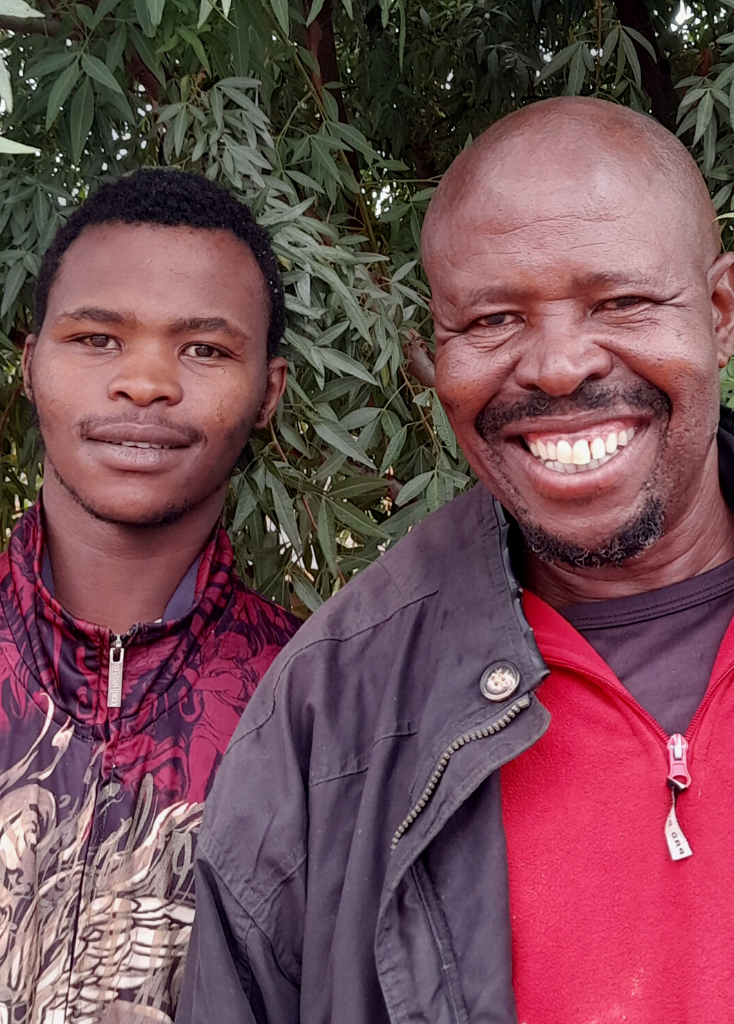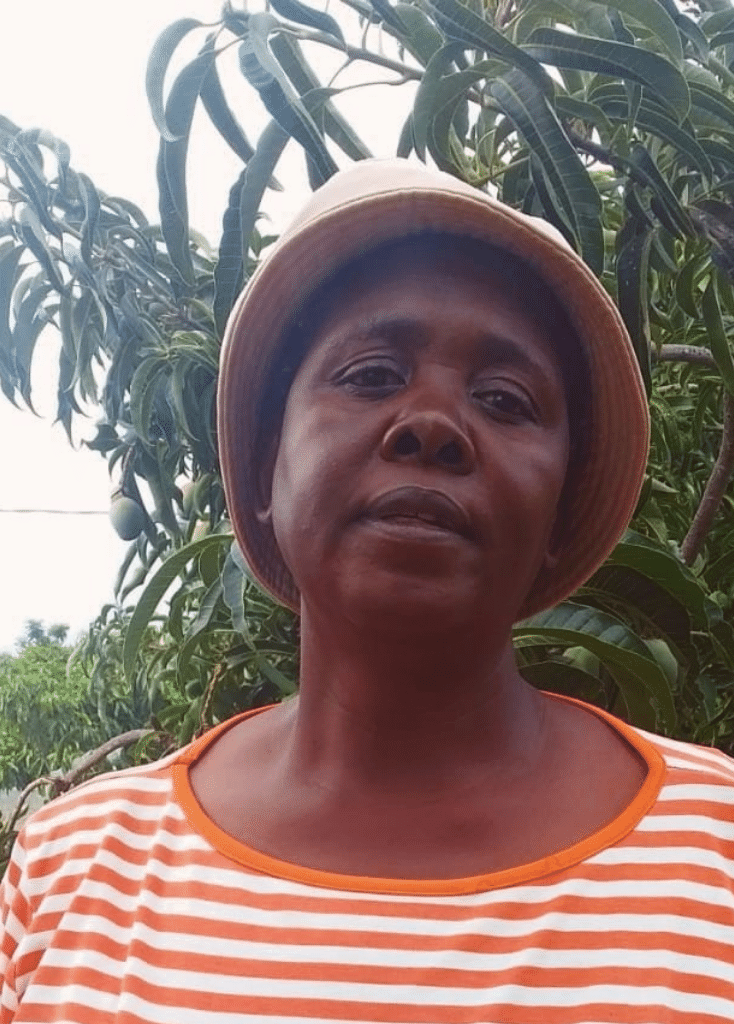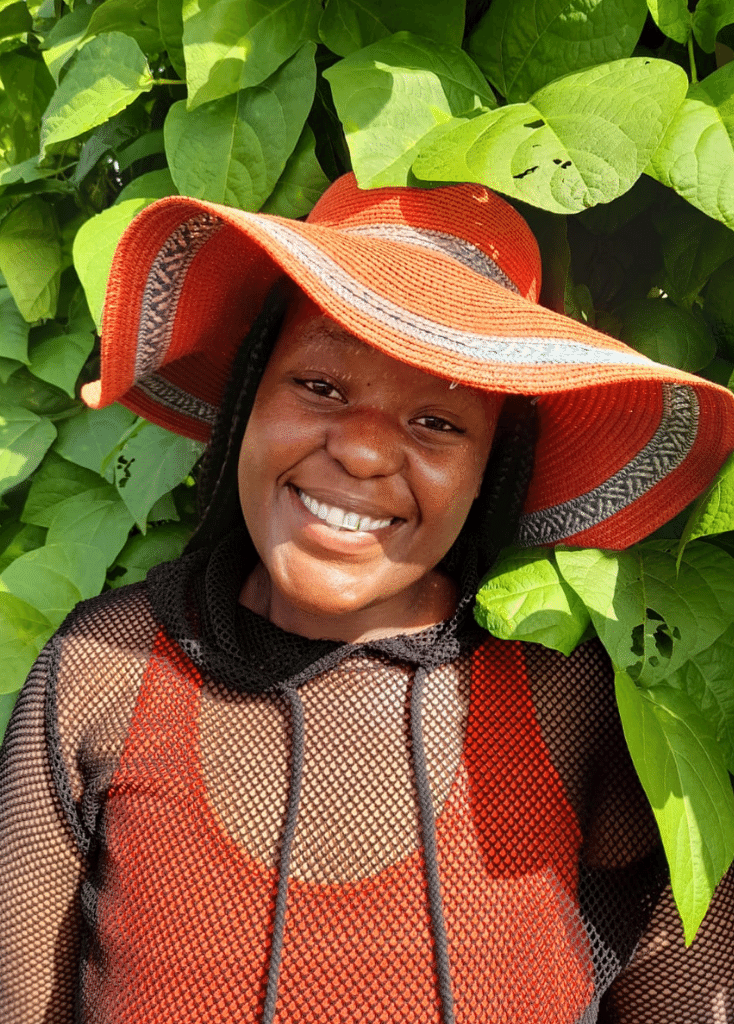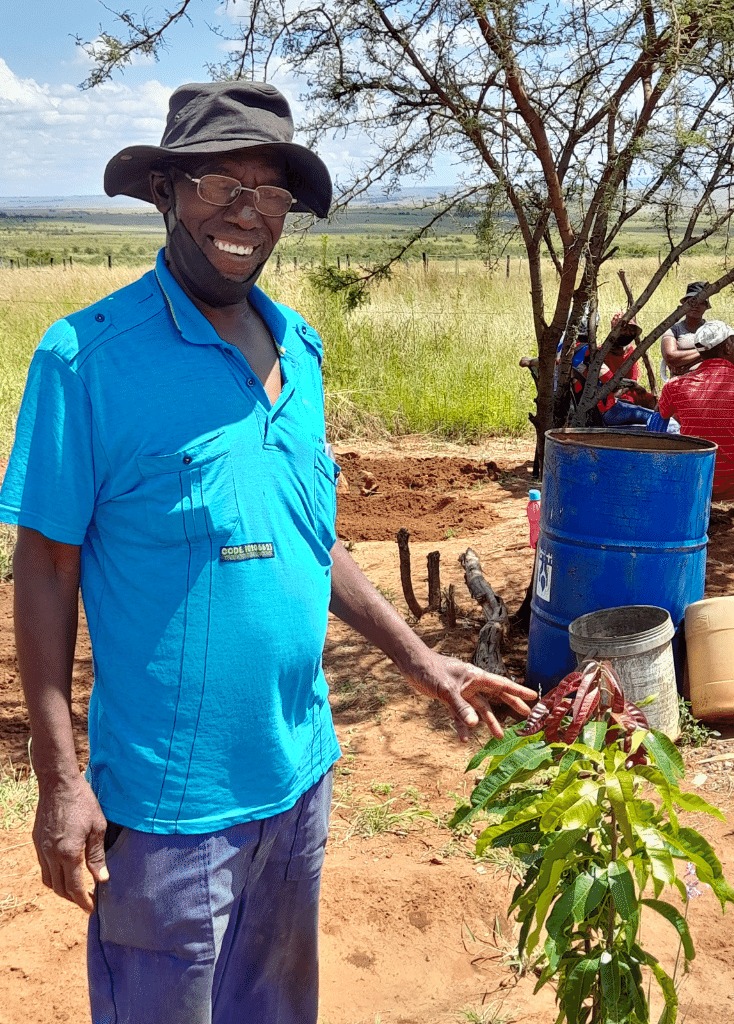
BBL PARTICIPANT: William Ndabazipheli Skosana and Simphiwe Skosana, Swaneville, Mogale City, Gauteng
In a Nutshell
Through their participation in SocioTech’s Broad-Based Livelihoods (BBL) strategies to stimulate personal economic activity, the father and son team of William Ndabazipheli Skosana and Simphiwe Skosana have improved their farming techniques and gained the understanding of the money management strategies necessary to transform a family food garden into a commercial farming enterprise.
They say…
William (father): I used to have a business collecting, cleaning, and reselling used oil back to industry, but this economy is very difficult and even though I worked hard, it was not successful. Now that I have done SocioTech’s MyFuture business training, I can see where I made mistakes. Basically, I wasn’t working with money properly. Customers would pay me and so money would come in but then it went out again without much thought. I had no clear strategy, no budgets. I wasn’t investing in the business to generate more money. I was paying high bank charges. I can see now that I didn’t have the financial knowledge I needed.
About a year ago that business failed, so I decided to get serious about farming. It is no good just sitting in the location doing nothing and asking for money. That is no way to live. And I have always enjoyed growing vegetables, so I decided to try and turn a hobby into a new way of life. I have always grown a few mielies and maybe some beans and tomatoes in the garden around my house. In the old days I did that I found it relaxing and I preferred the taste of homegrown ingredients. Even if all you do is boil a green mielie and have it with a bit of salt, it tastes so sweet compared to ones you buy in the shop. Now I am taking food gardening more seriously and seeing it as a business not a hobby.
This new way of life is not just for me. My son Simphiwe finished school two years ago and I wanted to try and start something that we could work on together. This location is dangerous for young people. There is a lot of nyaope and violence. Through farming together, we are creating a family business and I am keeping him away from all that nonsense.
Simphiwe (son): We did the MyFood training together in June of this year and we both learnt a lot. Before, when we grew vegetables at the house, we just cleaned the area and put a bit of manure down and planted. We didn’t know about trenching. We didn’t know about irrigation. We didn’t really mulch the soil. Through the training I have come to understand that the biggest investment a farmer can make is in his soil.
"The biggest investment a farmer can make is in his soil. "
William (father): Our plan is to grow gradually from our small farm into a big commercial enterprise. It won’t be easy but I think we can do it. Nothing worth doing comes easy. When we first started with these trenches, finding all the bones and tins seemed so difficult and I got so sore and tired from digging but after a while it gets easier. We now have six trenches (12 metres by 2 meters). There are different kinds of fitness and we are now farming fit. I don’t just mean strong muscles. I mean that our minds and eyes have been trained and strengthened for the task. At first it is quite hard to find enough cans and bones but once you get used to that way of thinking you can’t stop. Once your eye is trained to seeing tins and bones, you start seeing them everywhere.
Simphiwe (son): The trenching method made a big difference to the quality of the vegetables. We built our tunnel about two months back and that has also been a big help. This environment is tough on plants. The sun is fierce. The rains can wash crops away. We are lucky that our land is next to the river but there are still problems. There can be problems with animals. In the past my dad has had to punish the owners of animals because they let their animals damage our crops. But he managed to get them to compensate us for losses and they haven’t done it again – they are now looking after their animals better.
William (father): The tunnel has been a big boost to productivity. In fact, our vegetables have grown so well inside that tunnel that we currently have a problem with too much spinach and not enough customers. It’s a problem when the customers sense that you have to sell and they start naming their own prices because they know you need them to buy. I suppose this is a life lesson in ensuring that there are enough customers for a crop. We need to be considering different ways of selling – perhaps selling to larger customers like supermarkets, schools or hospitals. Perhaps having a different approach to advertising our produce.
Simphiwe (son): I have been thinking about ways to bring in more customers and also different kinds of customers. Our goal is to be selling in bulk to shops rather than one bunch of spinach at a time. I do videos at church gatherings and parties so I was thinking maybe I could use that skill to put out advertising videos on social media. I haven’t worked out all the details yet but a marketing strategy that makes us stand out is what we need if we are going to get to our goal of a big, commercial farming enterprise. Having a goal and focussing on it is the way to make this work. Because I am young, many of my friends think this farming thing is nonsense. They think I don’t know what I am looking for in my life, but they are wrong. This is the start of something great.









